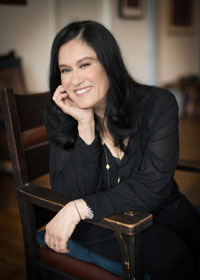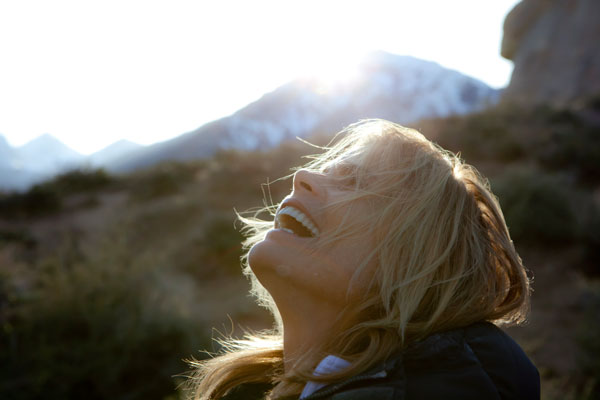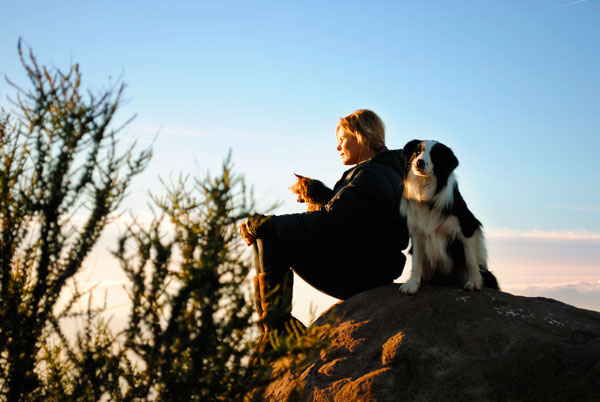Hopeful and heartbreaking, Running From Crazy opens with a vision of perfection: a blonde modeling in the wilderness. This particular pretty face, however, belongs to Mariel Hemingway, Ernest Hemingway’s youngest granddaughter, famous for her role in Woody Allen’s Manhattan. Hemingway’s family history of depression, substance abuse, and suicide is not limited to her legendary grandfather. Two-time Academy Award®-winner Barbara Kopple uses fascinating archival footage of the Hemingways to explore mental illness as one of the last American taboos and their struggle to heal while communicating honestly about the past.
Please describe Running From Crazy in your own words.
Barbara Kopple: This film is about Mariel Hemingway and her journey to find peace with her complex family history of mental illness and depression. It’s an intimate story about family relationships and how it’s possible to rise above the sadness of our past and find a better, more satisfying life.
What inspired you to tell this particular story?
BK: I was approached by the Oprah Winfrey Network to make this film. Mariel’s best friend was a producer at OWN at the time, and she managed to convince Mariel that her life would make for an incredible documentary. Of course I jumped at the chance to tell her story and the story of this iconic American family.
The film explores myriad issues, ranging from family dynamics to mental health to alcoholism and drug abuse. How do you think Mariel has been able to rise above all the challenges in her life?
BK: Mariel is extremely committed to leading the healthiest and happiest life that she possibly can. It hasn’t always been easy for her, and there may have been some missteps along the way, but over time she’s been able to find a lifestyle that works for her that gives her an enormous sense of self-love and peace.
You have been screening Running From Crazy at festivals across the country (and beyond). What has been the most rewarding response from audiences?
BK: What’s been truly amazing is that some audience members have been so touched by the film that during the question and answer sessions following the screenings, they have felt compelled to share their own personal stories about how suicide or depression have touched their lives. It’s been so moving for me as a filmmaker to see that Running from Crazy has allowed people to talk about this issue, which is so hard to discuss and still very stigmatized. I find this response to be very brave.
What do you want audiences to take away from your film?
BK: I want audiences to know that if they or a loved one are struggling with mental illness or suicidal thoughts, that all is not lost. There is hope and they are not alone. I want the film to inspire people to openly talk about this issue, because bringing it to the forefront of public discourse is the first step in changing how we view it.
As an acclaimed filmmaker with a legendary career, do you have one piece of advice for aspiring filmmakers?
BK: I always say if this is your passion and you want to be a filmmaker, go out and make a film. It won’t be easy, but making films is the greatest thrill, and for me it has always been worth the risk and the challenge. It’s the most amazing ride you’ll ever take!
What are you most looking forward to at the 2013 Hamptons International Film Festival?
BK: I’m looking forward to seeing some great films and hanging out with my fellow filmmakers—all in the most beautiful setting. Can’t wait!
Running From Crazy will screen in the World Cinema program at HIFF 2013. Tickets | Facebook | Twitter
Barbara Kopple will also hold a Rowdy Talk on Friday morning, October 11. The talk is free, but tickets are required.
 Barbara Kopple is a two-time Academy Award®-winning filmmaker. A director of documentaries, as well as narrative TV and film, her most recent project is the documentary Running From Crazy, which premiered at the 2013 Sundance Film Festival. Barbara produced and directed Harlan County, U.S.A. and American Dream, both winners of the Academy Award for Best Documentary Feature. Her other films include The House Of Steinbrenner, Woodstock: Now And Then, Shut Up And Sing, Havoc, A Conversation With Gregory Peck, My Generation, Wild Man Blues, Fallen Champ: The Untold Story Of Mike Tyson, and many more.
Barbara Kopple is a two-time Academy Award®-winning filmmaker. A director of documentaries, as well as narrative TV and film, her most recent project is the documentary Running From Crazy, which premiered at the 2013 Sundance Film Festival. Barbara produced and directed Harlan County, U.S.A. and American Dream, both winners of the Academy Award for Best Documentary Feature. Her other films include The House Of Steinbrenner, Woodstock: Now And Then, Shut Up And Sing, Havoc, A Conversation With Gregory Peck, My Generation, Wild Man Blues, Fallen Champ: The Untold Story Of Mike Tyson, and many more.







